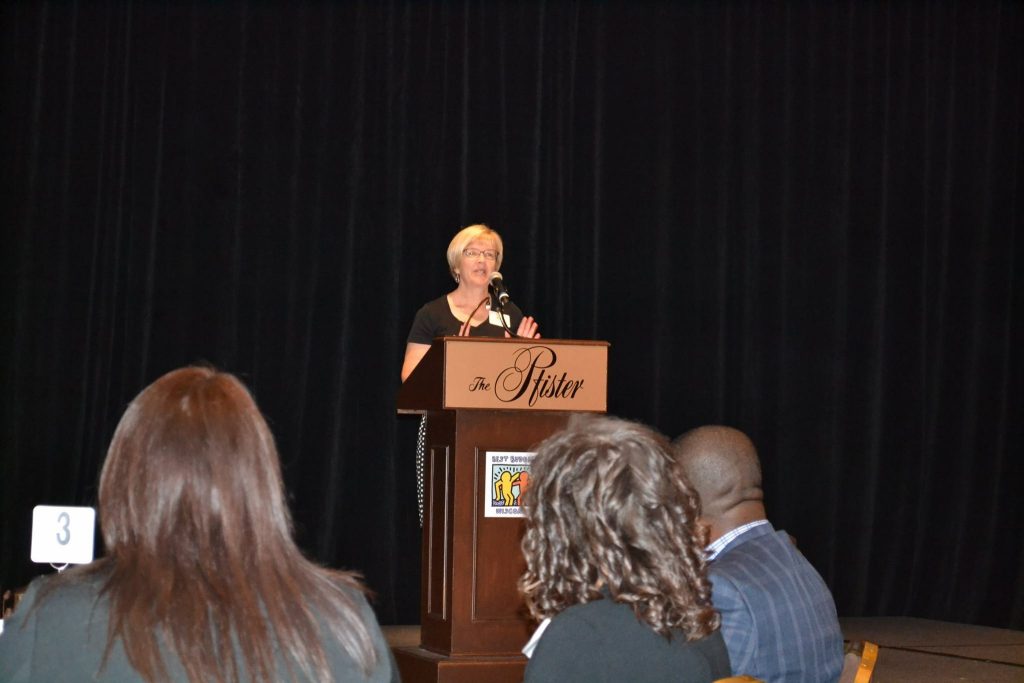This post is written by member Peg Grafwallner.
Recently the State of Wisconsin proposed new license regulations to curtail teacher shortages (see State of Wisconsin Proposing New Teacher Licensure Regulations to Curtail Teacher Shortage by NCTE Higher Education Policy Analyst Donna Pasternak). In theory, it makes sense to review the license regulations to see what can be done to alleviate this dilemma. However, we know that theory, while important, hardly works in the real world. What then are we supposed to do?
Like all of you, I worked hard to earn each of my teaching licenses. I wrote reams of lesson plans, read through volumes of research, stayed up late collaborating with study teams, learned new technologies, sought professional development opportunities outside the university, observed classroom teachers in the field, and put theory into practice during student teaching. I deserved every license I earned and am proud of the work I did to earn them.
Therefore, when I read words like reduce, softening, and allowing regarding the possible changes, I was apprehensive. I wondered what all of it meant.
After reading Donna Pasternak’s policy analysis report, I have grown more concerned. The teacher shortage issue has been created through a series of political circumstances. But to respond to the politics by relaxing teacher requirements doesn’t make sense.
My English license allows me to teach English grades 7–12. I do not have the skills or background to teach journalism or creative writing. I would do a disservice to students who were expecting to be taught the fundamentals of journalism but who would have to settle for me, because, unfortunately, that’s what it would be. Students should not have to “settle” in their education. They should expect teachers who are experts in the content of their field and experts in conveying that content.
When I think back to my student teaching days, I needed the time, experience, and opportunities to fail in order ultimately to be successful. Student teaching gave me all the experiences of being a teacher—but with a safety net. That “net” meant that while I was responsible for planning, instruction, grading, paperwork, and other details, an experienced teacher “had my back.” I wasn’t driving alone; my co-pilot offered advice, expertise, and modeling of best practice. I was not qualified to be the “instructor of record.”
According to Wikipedia, “the term pro forma [as referenced in the policy analyst report] is most often used to describe a practice or document that is provided as a courtesy or satisfies minimum requirements.” Therefore, teachers from other states could teach without having to meet Wisconsin’s level of requirements; as a matter of fact, their out-of-state license is all that would be necessary to placate the “minimum requirement[s].” Our children deserve more than the “minimum requirements.” They deserve teachers with 21st century skill mindsets who are passionate about leading them and their learning.
I cringe when I think that a standardized test or meeting a certain GPA could determine whether I qualify to be a teacher. Standardized testing measures my test-taking abilities on that particular day. How can a standardized test measure my level of empathy, or my ability to create engaging lessons, or my ability to collaborate with colleagues? A standardized test will measure my knowledge at one point in time. That is not enough to teach children; knowledge is merely part of a complex puzzle.
Finally, giving school districts the “authority to validate teacher competency” gives too much power to individuals who don’t understand or know the specifics of every license. As an example, if a school district lacks a reading specialist, will it try to substitute an English teacher? A reading specialist requires a diverse set of skills that are different from the skills required of an English teacher. Once again, to compare the two licenses is to minimize the other. Who would make these decisions and does this individual have the expertise to make that decision?
Altering the requirements for teachers is an insult to our profession and a travesty for our students. Insinuating that pedagogy—the art and science of teaching—can be somehow magically bestowed diminishes the important work all of us did to get where we are. Students deserve consummate, expert educators in the classroom, not “certified-lite” interns who are grappling to learn the profession while students are struggling to learn the content. Let’s work together to maintain the highest quality of professional educators who continually better themselves for the sake of our students.
Peg Grafwallner, M.Ed., is an Instructional Coach/Reading Specialist at a large urban school in Milwaukee, WI. She is a blogger, author, and national presenter with articles appearing in ASCD, Edutopia, Exceptional Parent, Literacy Daily, Literacy and NCTE, WSRA Journal and Illinois Reading Journal. Peg can be reached at peggrafwallner@hotmail.com or at https://peggrafwallner.com.

